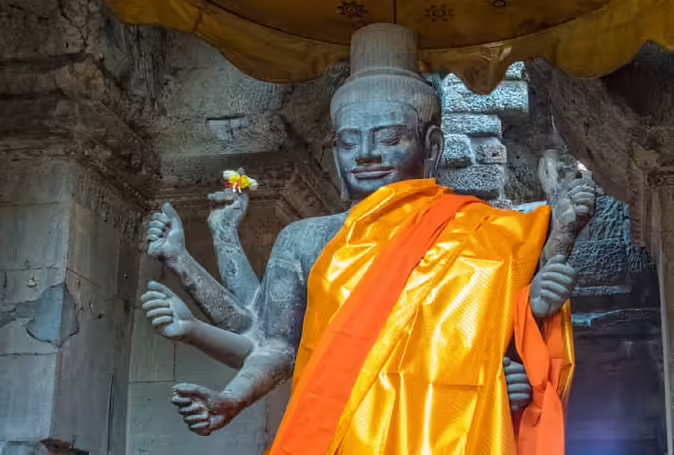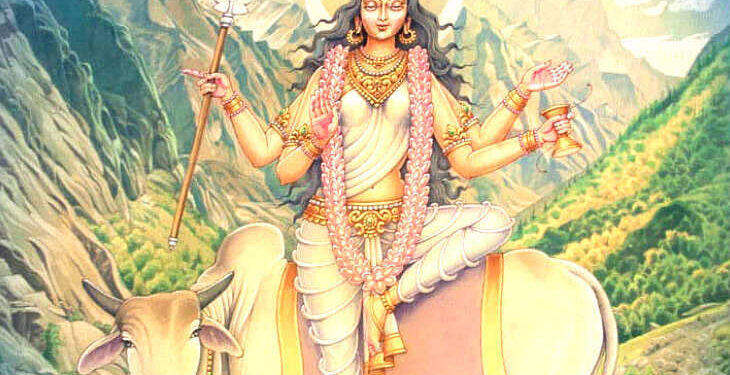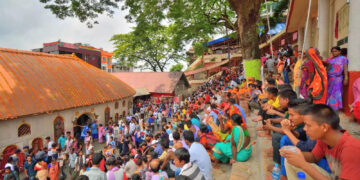There are thousands of Hindu temples in the world, which are spread not only in India but also in many countries of the world. These temples are not only famous as religious places, but also attract people’s attention due to their architecture, history and cultural heritage. But have you ever heard that the world’s largest Hindu temple is in a country where the Hindu community is not almost present? This is true and the story behind it is very interesting and amazing.
The world’s largest Hindu temple – but why not Hindus?
The world’s largest Hindu temple is located on the island of Bali, Indonesia, named Pura Besakih. It is also called ‘Maa Temple’ because it is considered to be the most prominent and most sacred temple of the Hindu community of Bali. Pura Basuki is the largest and most important Hindu religious center in the entire Indonesia.
Although Indonesia has a population of about 27 million, but there are very few people following Hinduism – about 1.7%. That is, Hindu communities are minorities in this country. This makes the characteristic of this temple even more interesting, as the number of Hindus here is very low, despite the deep roots and religious cultural heritage of Hinduism.
History and importance of Pura Basuki
Pura Basuki was built in the 8th century. The temple is situated towards the south-west of the volcanic Mount Mount Agung, which is considered to be the largest and most sacred mountain in Bali. This temple is dedicated to the three major deities of Hinduism – Brahma, Vishnu and Mahesh (Shiva).
The complex of the temple is a group of many small temples, which are the center of religious and cultural life of Bali. Thousands of devotees and tourists come here every year, especially during religious festivals and festivals.
The specialty of Hinduism in Indonesia
The Hinduism of Indonesia has evolved into a different form from other places in Bali, which is called Bali Hinduism. It is a unique form of Hinduism, in which local traditions, rituals and some influence of Buddhism are also seen.
The Hinduism here is associated with nature worship, temple rituals and traditional dance songs. Temples like Pura Basuki are the center of this cultural diversity.
Why are Hindus not in this country?
Indonesia is the largest Muslim -dominated country in the world, where about 87% of the population believes in Islam. In other parts of the country, followers of Hinduism are extremely rare. The presence of Hinduism became very limited due to the process of Islamization.
Nevertheless, the cultural heritage of Hinduism continues on Bali Island, where Hindus are keeping their traditions and religious acts alive. Because of this, religious and cultural significance of Pura Basuki is still supreme.
Global importance of Pura Basuki
Tourists and researchers from all over the world come here due to the architecture, religious importance and cultural specialties of Pura Basuki. This temple is not only the center of religious reverence but is also a symbol of cultural diversity and tolerance of Indonesia.
International institutions such as UNICEF and UNESCO are working to conserve and promote this temple and its surrounding area. Also, the local administration also sees it as an important center in terms of tourism.
What does Hindu theology say?
The importance of temple in Hinduism is not limited to religious faith only. It is a place where there is a confluence of religion, art, culture and social life. Temples like Pura Basuki are a living example of the fact that the expansion and diversity of Hinduism is not limited to India only.
This temple reflects the global form of Hinduism, where along with religious faith, there is a wonderful combination of environmental protection, art, music and folk culture.
conclusion
The Pura Basuki Temple, situated on the island of Bali, Indonesia, is a wonderful site that shows that the boundaries of religion and culture are not only geographical. This temple is a symbol of a deep and old root of Hinduism, which is also maintained in the country where the number of Hindus is negligible.
The special thing of this temple is that it is not only a place of worship for the followers of Hinduism, but also a representative of their cultural identity, history and heritage. Such temples are a message for us that the strength of faith and culture is above the boundaries and pluralities.
Next time you talk about Hindu temples, remember Pura Basuki – which is the largest Hindu temple in the world, but in the country where Hindus are minorities. This temple is not only the center of faith, but also a symbol of cultural tolerance and religious diversity.






